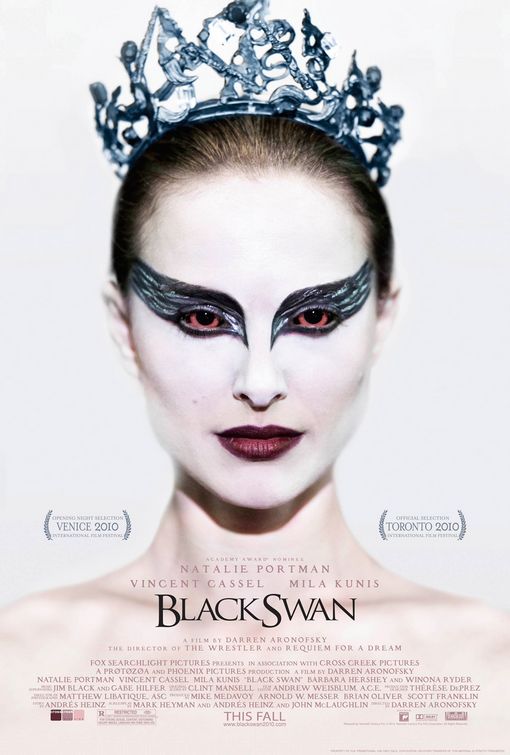Archive for February 20th, 2011
Transforming a Future King
The King’s Speech
In the age of radio and the approaching storm clouds of World War II, King George VI takes over the British throne after his elder brother King Edward VIII abdicates in favour of marrying American divorcee Wallis Simpson. Tom Hooper’s superb drama The King’s Speech is remarkable in the three central performances by the fantastic Colin Firth as King George VI, Helena Bonham Carter as his wife Queen Elizabeth and Geoffrey Rush as an exuberant and unorthodox speech therapist, Lionel Logue. Coupled with a brilliant score by Alexandre Desplat who did the music for Stephen Frears’s drama The Queen and using an evocative and almost gloomy backdrop of post-depression London, The King’s Speech is a film that deftly combines the historical enormity of the abdication crisis and the approaching war, with a far more personal affliction of a reluctant King who has suffered since childhood with a terrible speech impediment.
In the intelligently scripted scenes, written with panache by David Siedler between Lionel and Bertie as King George VI was known, Siedler portrays an unconventional Antipodean speech therapist who recognizes the potential of a prickly nobleman destined to become a great King and gives him back the confidence to rule a nation at a time of immense uncertainty. Geoffrey Rush and Colin Firth are in top form as commoner unleashing the potential of a King and slowly uncovering the psychological stumbling blocks associated with such a speech disability as a Prince suffering the effects of a strict Victorian upbringing and weighted with the destiny of being 2nd in line to the British Throne.
Director Tom Hooper not only shows the historical developments of late 1930s Britain but also the rapid and transforming power of radio and the potential of this new medium to address all corners of the then expansive colonial Empire. Much was at stake for Bertie to conquer his affliction and give Britain and its colonies hope and inspire confidence through the power of radio as the storm clouds gathered with the rapid brutal expansion of the Third Reich, culminating in the outbreak of World War II in September 1939.
The Kings Speech is funny, immensely moving and by far the best film about the British Monarchy to be made in recent years and can stand proudly as a companion to such classics as The Madness of King George and The Queen.
The Kings’ Speech is just the right vehicle to recapture the imagination of audiences worldwide to the powerful allure and the enduring reign of the British monarchy. Colin Firth deserves all the accolades already heaped on him for his subtle and multi-layered performance as Bertie and is supported brilliantly by Geoffrey Rush, Helena Bonham Carter along with stolid cameos by Michael Gambon as the patriarchal King George V and Claire Bloom as the stoical Queen Mary.
The Fall of the Swan Queen
Black Swan
Director: Darren Aronofsky
Cast: Natalie Portman, Mila Kunis, Barbara Hershey, Vincent Cassel, Winona Ryder, Sebastian Stan, Patrick Heusinger
Darren Aronofsky’s masterpiece is a taut psychological thriller about a prima ballerina who delves into her dark side, so she can perform the complex role of the Swan Queen in Tchaikovsky’s Swan Lake. Natalie Portman gives a stunning and frenzied performance as Nina Sayers. As well as the physical demands of playing the lead Ballerina in Swan Lake, Nina is trapped in a claustrophobic and co-dependent relationship with her mother, a wonderfully obsessive performance by Barbara Hershey (Portrait of a Lady).
Whilst rehearsing for the final act, the ballet master a seductive and sadistic Thomas played with relish by Vincent Cassel, taunts Nina and reproaches her continually for not bringing out her dark qualities to dance the antithesis of the White Swan, the Black Swan. The fact that Nina is prone to episodes of self-mutilation smothered by her overbearing mother and is generally an exceptional sexually frustrated and fragile young woman who uses dancing to quench her repressive state, makes Black Swan a highly intoxicating psycho sexual thriller set in the bitchy and uncompromising world of ballet.
Aronofsky always has his central characters stripped away to the vicious core, from The Wrestler, where in a break-out performance by Mickey Rourke as a washed up Trailer Park, drug-addicted wrestler angling for a comeback to heroin addicts played by Jennifer Connelly and Jared Leto in Coney Island, who resort to extreme methods for their drugs, as detailed in the inventive and shockingly brutal Requiem for a Dream.
Black Swan is no exception, as Portman gives a ground breaking performance of a Ballerina rapidly losing her grip on reality, delving deeper into her own troubled and shattered psychosis to satisfy the dreams of an obsessed mother who compromised her own stage success.
Black Swan is about the rigours of Ballet training along with the mental deterioration of a young woman driven beyond the edge of sanity, surrounded by a gallery of heinous characters from an overbearing mother, a cruel ballet instructor and a tempting rival, Lily played with an unforgiving relish by Milas Kunis slyly plotting to derail Nina’s debut as the Swan Queen.
This is a classic psychological thriller, from the drab and daunting world of the dance studios, filled with giant mirrors reflecting Nina’s inner torment to the dingy apartment shared with her mother, an entire film bathed in black and white with only the occasional gashes of blood to break the diametric colour palette. Watch out for a great cameo performance by Winona Ryder as the broken ballerina Beth who declines as savagely as Nina’s star rises dramatically. Black Swan is a debut etched in blood and director Aronofsky, like in The Wrestler and Requiem for Dream shows this grueling Ballet world in its entire stripped down depravity, with obsessive dancers driven and searching for a depreciating gratification. A far cry from the graceful triumph associated with Ballet exemplified in such films as The Company and Mao’s Last Dancer.




